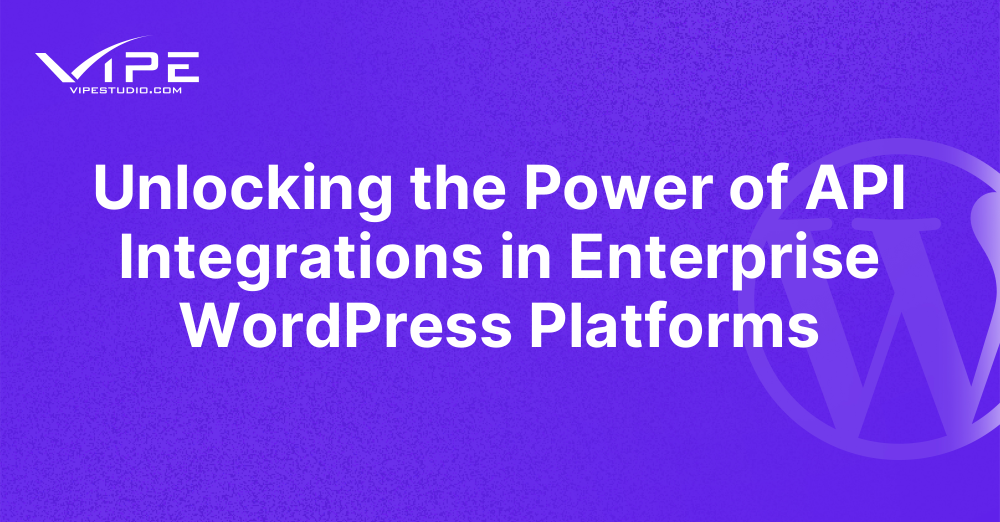03.05.2025
WordPress Development
Unlocking the Power of API Integrations in Enterprise WordPress Platforms
READING TIME: MIN
Table of Content
As enterprises increasingly rely on interconnected software ecosystems, the ability to integrate platforms and tools becomes essential. WordPress, traditionally viewed as a content management system, has evolved into a flexible and powerful application platform—largely thanks to its support for RESTful APIs. This article explores how API integrations can supercharge enterprise-level WordPress websites, enhance operational efficiency, and connect critical business systems.
API Integrations Transform WordPress into a True Digital Hub
Enterprises rarely operate with isolated systems. CRMs, ERPs, marketing automation platforms, and eCommerce solutions must communicate to ensure consistency and reduce manual work. WordPress, when configured with robust API integrations, can become a central interface through which these tools interact.
From syncing customer data with Salesforce to displaying real-time inventory from an ERP, APIs allow WordPress to move beyond static publishing and into dynamic, data-driven operations that scale with the business.
Common Enterprise Use Cases for API-Driven WordPress Solutions
- CRM Integration: Automatically route contact form submissions to platforms like HubSpot or Zoho CRM, including tracking campaign sources and user metadata.
- eCommerce Connections: Sync WooCommerce orders and inventory with external warehouse systems or point-of-sale solutions.
- Analytics and Reporting: Pull real-time metrics from Google Analytics, Mixpanel, or custom BI dashboards directly into the WordPress admin area.
- Authentication and SSO: Integrate with enterprise identity providers like Okta or Azure AD to manage user authentication across systems.
Headless WordPress and APIs: A Match Made for Enterprise Agility
Headless architecture, where WordPress is used purely as a content backend, relies heavily on APIs to deliver data to the frontend. This model allows developers to build custom interfaces using modern frameworks like Next.js while preserving the editorial power of WordPress.
Enterprises benefit from improved performance, greater control over user experiences, and the ability to serve content across multiple channels—from websites to mobile apps and even IoT devices.
Security and Scalability Considerations in API Integrations
Security is paramount when exposing and consuming APIs. Enterprise WordPress development must include proper authentication protocols, such as OAuth 2.0 or JWT, along with rate limiting and input validation.
Additionally, caching strategies, asynchronous requests, and background processing help ensure that integrated APIs don’t slow down the site, even under high traffic or complex data loads.
How Vipe Studio Supports API-Driven Enterprise WordPress Development
At Vipe Studio, we specialize in building secure and efficient API integrations tailored to the unique needs of enterprise clients. Whether you need to connect WordPress to a legacy system, a cloud-based SaaS tool, or a modern frontend, our team designs and implements scalable API workflows that enable digital growth and operational consistency.
Ready to build a connected digital experience that scales? Contact Vipe Studio today and discover how strategic API integrations can empower your WordPress platform to drive business success.
More on The Topic
- Navigating WooCommerce Performance: Real-World Strategies
- The Role of AI in WordPress Development Workflows
- Optimizing WordPress for Enterprise: Beyond Basic Caching
- WordPress and Headless Commerce: A Provocative Dilemma
- Decoupled WordPress Architecture: The Future or a Fad?
The content of this website is copyrighted and protected by Creative Commons 4.0.



